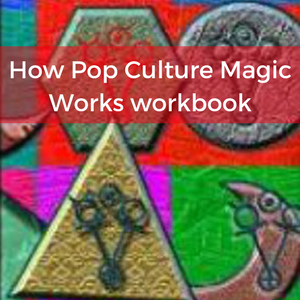I recently binge watched seasons 1 and 2 of Ragnarok. It’s a modern retelling of the Norse myths, but what I found most interesting about the show is how they explored the giants and gods in the modern story. The giants are running the town and eternally cycling from young to old, while the gods end up end up manifesting as avatars that are woken up in order to fight the giants, but what’s interesting is that what is implied is that any person could become a god if they were activated.
It’s a pop culture rendition of the Norse myths and as always I find the pop culture retellings to be fascinating, because in a way a pop culture retelling is also an avatar of a mythology that has been activated to help perpetuate that mythology. Whether the pop culture is a TV show, video game, book, or comic, or some other form of media, when it calls attention to the original mythology, while also doing a retelling of the mythology in a different context, it perpetuates the mythology. This is part of the power of pop culture. It takes old stories and makes them new again.
In the case of Ragnarok the retelling explores the nature of the Gods. They aren’t necessarily bound to a specific physical identity, so much as they’re bound to whoever is willing to pay the price. Each person has to decide if they are willing to pay the price. In some cases that price isn’t immediately apparent, but inevitably it ends up coming up, and this also ends up reflecting on the theme of the original mythology.
One of the challenges for pop culture renditions of older mythologies is how to simultaneously stay true to the original mythology, while also telling a “new” story. With Ragnarok, they build the story up slowly, gradually introducing the Norse myths, while also creating a modern mythology set in contemporary times. In each season they introduce just enough in both situations to help create a compelling story and draw people into the original mythology as well as the new mythology. This isn’t an easy balance to strike and when it occurs and is done well, it ends up drawing attention to the original stories and also engaging people in the modern mythology.
One of the aspects of pop culture magick that I write about is how older pop culture (and I would argue mythology is the ancient world’s version of pop culture) informs new pop culture and integrates into it as a way of perpetuating itself. The old gods find the relevant media and use it to make themselves new again and when this happens it rejuvenates the original mythology as well. Perhaps we should consider the new new mythology to be the avatar of the older mythology and also consider that we ourselves are being seeded so that we might perpetuate what has come before by enjoying new takes on it.
